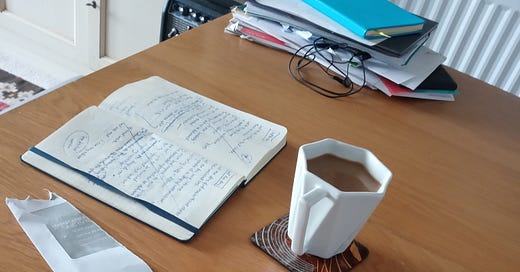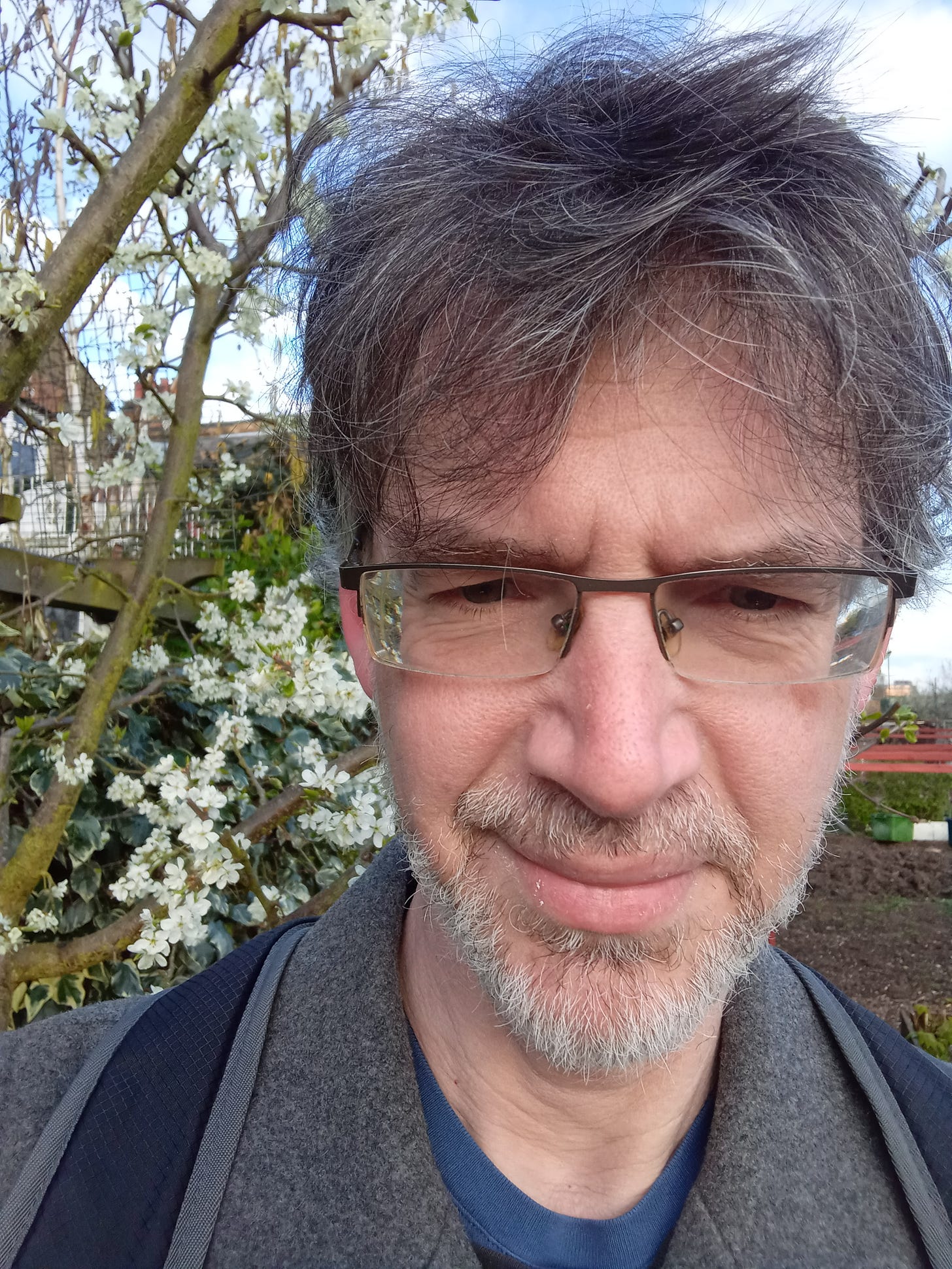#39 Richard Price, poet
'I take writing seriously in my head. I don't take it seriously enough practically'
Richard Price’s latest collection is Late Gifts (Carcanet). He is Head of Contemporary British Collections at the British Library and a tutor at the Poetry School. He edits the print zine Painted, spoken which has a digital presence at paintedspoken.com. More information about his books and projects are at hydrohotel.net.
Where do you write?
I carry a notebook with me so that I can write when I am occupying in-between places, because though I take writing seriously in my head I don't take it seriously enough practically, certainly not enough to make much time for it specifically.
I write on trains when, yes, perhaps I should be working for the organisation that employs me, I write in a cafe while I wait for my son to finish his dance lesson. Recently becoming addicted to social media has meant there's a tussle between writing and scrolling, so within that marginal time writing is losing out. This may be a gift to the world.
And finally there's my kitchen table. The tables have changed over the years but I've always written in the kitchen, often in 'post-production' where the drafts have to be typed into the computer and then they go through a further editing in the process. I used to share the table with my big brother as he revised for exams at technical college but these days it's just me, Giles Peterson or Gideon Coe on the radio, and scorings-out.
Morning writer or late-night words?
Writing in the morning is best for me—I'm fresher, almost articulate, and the coffee tastes particularly fine. Ideally, I would walk a little first, let the new day seep into me, and feel I had got the circulation going before finding a cafe at the opposite edge of my district in London. But when I have an obsession on—as I did with the retelling of the Inuit tales in The Owner of the Sea—I write in all hours, trying to push through to another zone. Coffee fuels me for the first half of the day, dirty like diesel, tea cleans me up in the afternoon.
Once in a while I like a death spiral, that greasy vortex with its raisin planets caught up in the folds of black-hole pastry. I'm told it is really called a 'pain au raisin'. French! There's fancy!
What's that we hear on the speakers?
You hear The Wave Pictures, When the Purple Emperor Spreads His Wings. I have followed them for years, back from the days when I first got interested in the singer-songwriter Darren Hayman (of Hefner, then The French, then Darren Hayman and the Secondary Modern). They hung out together and the Wave Pictures used to support Darren for many of his gigs.
Perfect bookshop to hide on a rainy day?
My favourite is the London Review Bookshop near the British Museum. I take my son in at the same time and because they have some children's books in the basement where the poetry section is we can spend up to about twenty minutes there, absorbed.
What's your most treasured book?
I am not much of a collector of books, partly because I've tended to live in small places, partly because I don't like the thought of books being static and unused, partly because I believe in libraries and in fact work for one of the biggest libraries in the world. But of course I have some books and I treasure them in different ways. An unbound set of Hugh MacDiarmid's Collected Poems, signed by MacDiarmid—it was given to me by his publisher thirty years ago. He was on the next table to me in a pub: he'd heard me enthusing about the extraordinary poems of that man. He nipped out for five minutes, went to his flat nearby, and came back with it in a plastic bag: "You definitely should have this!". Another would be my mother's one-volume Shakespeare, a Christmas present from my father in 1949.
Three writers (dead or alive) to have dinner with?
I wish the wonderful poet and my old mentor Edwin Morgan was alive. I loved our lunches together and all the advice he would gently give me. I miss him. Sappho and Catullus, of course. And Louise Labé – and Guillaume Apollinaire. Making versions of Labé and Apollinaire's poems was a very important part of changing my own poetry and I would love to know more about their real lives. There would have to be many interpreters in the room, and linguistic historians, (even my schoolboy French wouldn't make foundation these days) so it would be a fabulous party. That's more than three writers, but poetry is not for passing exams!





